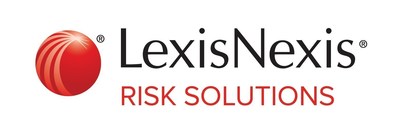Annual U.S. Home Trends Report Reveals Catastrophic Weather Events Continue to Drive Losses for Home Insurance Industry
LexisNexis Risk Solutions published its sixth annual Home Trends Report, highlighting that extreme weather events have led to significant increases in weather-related loss costs for homeowners and insurers in the U.S. Catastrophic weather drove 39% of claims in 2020, marking the highest level in six years. Overall loss costs rose by 6% year-over-year, presenting challenges for carriers in pricing policies profitably. The report emphasizes the need for insurers to utilize the latest peril-related trend data to enhance underwriting decisions.
- Increased demand for accurate peril-related trend data for insurers.
- Potential for enhanced underwriting and pricing strategies based on recent data.
- Loss costs increased by 6% year-over-year, complicating profitable policy pricing.
- Catastrophic weather led to 39% of claims in 2020, the highest proportion in six years.
- States like Louisiana faced the highest loss costs due to severe weather.
Insights
Analyzing...
ATLANTA, Oct. 26, 2021 /PRNewswire/ -- LexisNexis® Risk Solutions released its sixth annual LexisNexis Home Trends Report, revealing that increasing extreme weather events are leading to more weather-related loss costs for U.S. homeowners and insurers. The 2021 LexisNexis Home Trends Report provides the trended by-peril home insurance data and location-based insights that insurance carriers may need to make informed risk assessments and underwriting decisions.
Catastrophic weather events, such as wildfires, hurricanes and floods, were some of the largest drivers of losses for the home insurance industry and caused
"With catastrophe claims driving losses and reinsurance costs higher, it's imperative that insurers have the most recent peril-related trend data and an analytics partner who understands how by-peril trends are changing over time," said George Hosfield, senior director of home insurance at LexisNexis Risk Solutions. "Basing underwriting and pricing decisions on accurate and up-to-date data help insurers to meet loss-ratio objectives and growth targets, as well as support a better customer experience for consumers by helping homeowners avoid escalating costs."
Loss cost and frequency for all home perils combined rose in 2020, with certain states hit harder than others. Louisiana had the highest loss cost in the nation in 2020 as a result of wind claims from a detrimental hurricane season and 2021 has already brought a number of catastrophic weather events such as Hurricane Ida. In addition, Colorado and Nebraska ranked highest in loss cost over the period from 2015 to 2020 as a result of being located in "Hail Alley" and experiencing 7-9 days of hail each year.
The Home Trends Report also analyzed the impact of COVID-19 on the U.S. home insurance market. With more people working from home, loss cost due to theft was down significantly in 2020. Noted in the report, this is perhaps a result of increased adoption of smart home security devices. In 2020, the liability peril saw a
Additional key findings, by peril, from the LexisNexis Home Trends Report include:
- Wind: Wind frequency, loss cost and severity all increased significantly in 2020—frequency increased by
42% this year and loss cost by63% . 2020 marked the largest wind loss cost recorded in the last six years. - Hail: Loss cost and severity of hail claims declined in 2020, while frequency remained steady. However, catastrophe claims made up
62% of all hail claims this year and the frequency of hail catastrophe claims increased a significant9.9% year-over-year. - Fire and Lightning: The 2020 wildfire season, the most active on record, led to increases beyond 2017 and 2018 levels in both loss cost and severity for insurers. The proportion of catastrophe losses also increased. California accounted for the most loss cost, severity and frequency of fire and lightning claims, with
37.2% of all catastrophe claims nationwide in 2020. - Non-Weather-Related Water: While the six-year trend for water claims not related to weather continued to climb, 2020 did see a decrease in loss cost compared to 2019 – likely a result of people spending more time at home and perhaps increased use of smart water leak detectors.
"This year has already been very active in terms of hurricanes and other major storms," said Hosfield. "We expect 2021 and the coming years to continue this trend, which means it will be even more important for insurers to adopt new data to better assess roof risk at both new business and on their renewal book. Insurers need to be armed with the best roof condition information available to optimize coverage decisions."
To download the 2021 LexisNexis Home Trends Report, click here.
About LexisNexis Risk Solutions
LexisNexis® Risk Solutions harnesses the power of data and advanced analytics to provide insights that help businesses and governmental entities reduce risk and improve decisions to benefit people around the globe. We provide data and technology solutions for a wide range of industries including insurance, financial services, healthcare and government. Headquartered in metro Atlanta, Georgia, we have offices throughout the world and are part of RELX (LSE: REL/NYSE: RELX), a global provider of information and analytics for professional and business customers. For more information, please visit www.risk.lexisnexis.com and www.relx.com.
Media Contacts:
Amanda Howard
LexisNexis Risk Solutions
Phone: +1.678.231.4890
amanda.howard@lexisnexisrisk.com
Mollie Holman
Brodeur Partners for LexisNexis Risk Solutions
Phone: +1.646.746.5611
mholman@brodeur.com
![]() View original content to download multimedia:https://www.prnewswire.com/news-releases/annual-us-home-trends-report-reveals-catastrophic-weather-events-continue-to-drive-losses-for-home-insurance-industry-301408597.html
View original content to download multimedia:https://www.prnewswire.com/news-releases/annual-us-home-trends-report-reveals-catastrophic-weather-events-continue-to-drive-losses-for-home-insurance-industry-301408597.html
SOURCE LexisNexis Risk Solutions








